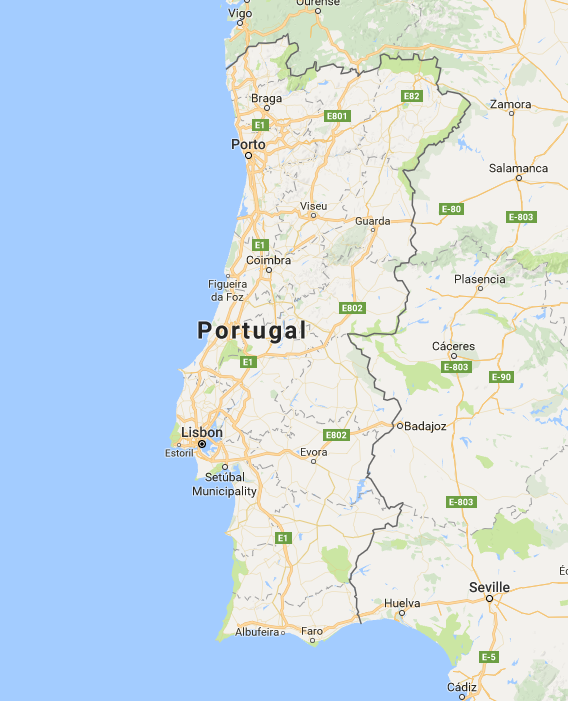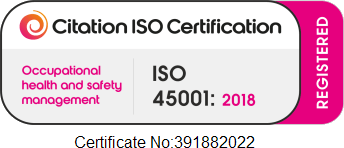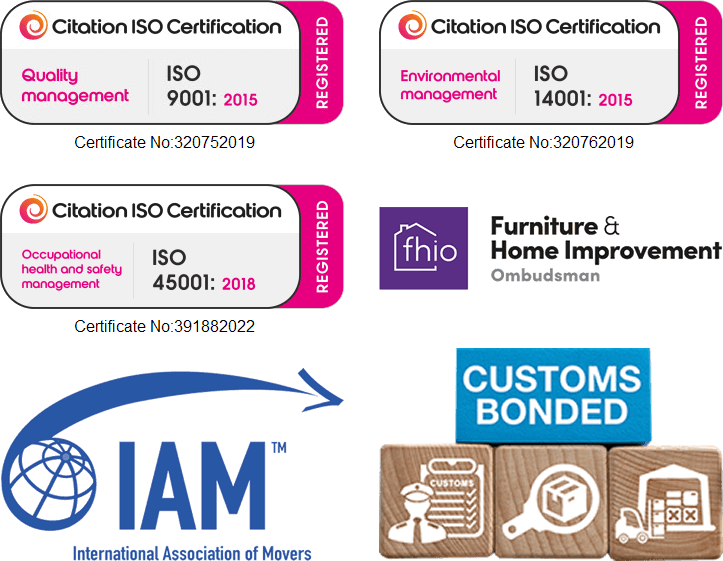REMOVALS TO PORTUGAL & FROM PORTUGAL TO THE UK
Are you thinking about moving to Portugal? Shipping household goods from the UK to Portugal can be stressful, but we have the removals expertise to meet all your Portuguese relocation needs.
Whatever your journey, from London to Lisbon or Porto to Penzance, let Matthew James take the stress out of your Portugal removals.

EUROPEAN SHARED LOAD
A part/shared load service is a cost effective way to move your goods to and from your destination. The reason this service is so cost effective is that you share the vehicle with other consignments and therefore the vehicle costs are also shared. All consignments are individually prepared, numbered, labelled and inventoried to ensure all items are correctly delivered to you. The main advantage of a part load service is that you will receive the Matthew James service of excellence at the most cost effective price.

Close x

EUROPEAN PREMIUM SERVICE
A direct service combines Matthew James’ service of excellence with the added advantage of a dedicated collection date and express delivery timescale. Handling of your effects is minimised as they remain on the same vehicle throughout. Although your delivery will be carried out in conjunction with other clients’ consignments, this means you will share the cost of the vehicle and your consignment will be prioritised for onward delivery typically within 7-10 days of collection.

Close x

EUROPEAN DEDICATED SERVICE
A dedicated service gives you the flexibility to choose your collection and delivery dates. This service means you will have exclusive use of one of our bespoke removal vehicles. This service guarantees the Matthew James service of excellence and peace of mind that your moving dates can be fixed, allowing you the convenience to make travel arrangements and plan your arrival. All delivery dates are subject to EU laws on driving time. We can confirm the timing prior to any booking.

Close x
Let us answer your questions for your removals to Portugal
At Matthew James Removals we are experts in relocation and can help you with all your needs, whether you’re looking at removals to Lisboa, to the Algarve or elsewhere. With three generations of experience, a fleet of custom-made vehicles, and regular services, you can be sure that you are in the best hands for removals to Portugal or even removals from Portugal to the UK.
Why relocate to Portugal with Matthew James Removals?

- Variety of bespoke removal packages.
- Storage and consolidation depots throughout western Europe.
- Free total-loss insurance cover
- Dedicated team of professionals
- Door-to-door care
- Years of local knowledge
- 3 Generations of experience
- Customised vehicle fleet
- Bespoke crating
- IAM, ISO 9001 and ISO 14001 accredited
- Superior quality packing materials
- All loads inventoried by our own staff
- Meticulous attention to detail
Portugal is a beautiful country with a rich history that 38,000 Britons have chosen to make their home. With an 850km coastline and a pleasant temperate climate, there’s no wonder why so many people are drawn to this country.
Situated on the western coast of the Iberian Peninsula, Portugal shares a border with Spain to the east and the Atlantic to the west. This location gives it some of the most beautiful natural landscapes in Europe. As well as stunning beaches and rolling mountains, Portugal also has a rich and vibrant culture, with some of the best food, wine and architecture in Europe. The cultural diversity in Portugal provides a great opportunity for traditional lifestyles as well as livelier options in metropolitan areas such as Lisbon, Faro and Porto.
As the first global empire, Portugal has the oldest borders in Europe. Portuguese led the spice trade in 1500, bringing exquisite flavours and culture from Brazil. Moving from UK to Portugal means immersing yourself in a rich and ancient history while still enjoying a more relaxed work-life balance and beautiful scenery.
If you’re considering a move to Portugal, Matthew James Removals offers tailored services to make your relocation as smooth as possible.
Portugal is a great place to relocate to for many reasons. The coast is beautiful, the community is friendly, and the climate is perfect. The capital, Lisbon, is one of the most affordable European capitals. It has about half a million residents, which gives the unique charm of a smaller city, but it also has all the comforts and amenities of a bustling European capital.
Many ex-pats also choose to move to Portugal for the cities of Porto, Amadora, and the charming coastal towns and villages in the Algarve. Whether you’re looking for a vibrant city or a peaceful seaside oasis, Portugal has something to offer for any ex-pat.
Weather
One of the reasons that so many people choose to move to Portugal is because of the wonderful weather. The summers are long and warm, and there is very little rainfall, making it a perfect destination for those from Britain who want to relocate to a warmer climate.
The climate in Portugal is mostly warm and temperate, with a distinct wet season in winter. Winter temperatures are similar to those in Spanish coastal towns, with an average daytime high of around 16°C (61°F). During the summer, ex-pats who opt for removals to Portugal can expect refreshing sea breezes and pleasant conditions. Daytime maximum temperatures typically reach 25°C (78°F), with 11 or 12 hours of sunshine, and as many as 29 dry days per month on average.
Portuguese culture
Portugal is home to a wealth of rich cultures with many historical influences, including Celtic, Lusitanian, Phoenician, Germanic, Visigoth, Viking, Sephardic Jewish, and Moorish.
In recent decades, the country has undergone a renaissance in the arts. As a result, the cities of Lisbon, Porto, and Guimarães have all been designated European Capitals of Culture.
This deep-seated appreciation of art is reflected in the number of museums present in cities across the country. Cities like the capital of Lisbon, the “second city” of Porto, Braga, Guimarães, and the university town of Coimbra all have numerous museums, and even smaller municipalities have their own collections. There is always an area designated for local art exhibitions in every town or village, often in or close to the Câmera Municipal (City Hall).
Music is very important to Portuguese culture. Some of Portugal’s most important forms of musical expression are fado, folk music, and dancing. Fado is on the UNESCO Intangible Cultural Heritage List and translates to “destiny” or “fate” and is characterized by mournful tunes and lyrics, often about the sea. The themes explored in fado are linked to the concept of saudade, a word which connotes homesickness, longing, and nostalgia.
Sharing and performing music and dance is integral to Portuguese culture. Even the smallest town in Portugal has a square dedicated to presenting regional folklórico (folk dance). Participants dressed in colorful clothing sing traditional songs and perform time-honored dances accompanied by instruments such as guitar, mandolin, bagpipes, accordion, violin, and drums.
Portuguese Food
Good food is important to the Portuguese lifestyle. Portugal’s cuisine features fish, meat, olive oil, tomato and spices, with hearty soups, homemade bread and cheeses. The fava bean was brought to Portugal during occupation, and now features in much of Portuguese cuisine, often served at fiestas in the summer.
The most popular soup in Portugal is Caldo Verde (green soup), which is made with Galician cabbage (kale), sausage, potatoes, and olive oil. The Estremadura region is famous for its seafood, and local produce is sold in markets and on the menus of most local restaurants.
There are a few significant differences between Portuguese and British food culture. For example, in Portugal, meals are usually accompanied by a soup and can last for several hours, primarily being a family affair.
Lunchtime (or almoço) is served around twelve-thirty and is typically the largest meal of the day with three courses. Dinner, (or jantar), is lighter and eaten at around 8pm. Breakfast, or pequeno almoço, is typically served Continental-style with coffee.
Finding Accommodation in Portugal
With a relatively small population of 10.5 million people, Portugal presents a great opportunity for British ex-pats looking to purchase property in a quieter part of Europe.
Real estate is very reasonably priced across most of the country and, when coupled with the comparatively cheap cost of living, the financial reasons for relocating to Portugal can be very persuasive.
This is especially attractive for British ex-pats who are looking to spend their retirement years soaking up the Mediterranean sun on one of Portugal’s many white sandy beaches.
Many British ex-pats are wondering if they can still purchase property in Portugal after Brexit. Fortunately, there have been no additional requirements for property purchasing introduced, making Portugal an appealing country for foreigners to purchase a home, with no restrictions in place.
The Portuguese government offers foreigners the Golden Visa program as an incentive to invest in real estate property. With this program, a non-EU citizen who invests in property worth a certain value can qualify for a Golden Visa residence permit. This permit allows the holder to live, work, and study in Portugal, and travel freely across the Schengen area. In five years, the holder can also qualify for permanent residence or citizenship in Portugal.
How much you pay for a property in Portugal varies depending on where you choose to buy. In turn, where you choose to buy depends on why you’re buying the property. For example, retirees often choose coastal towns in the Algarve or Cascais, while young professionals generally prefer more urban places like Lisbon or Porto.
Speaking Portuguese
Although English is widely spoken in Portugal, learning a little Portuguese can make integrating into the local community much smoother.
Portuguese is not a particularly difficult language to learn for native English speakers, especially if you have some prior knowledge of French or Spanish, and even a little effort will be appreciated by locals. There are many resources available to help you learn Portuguese, including online courses, apps, and books. Most Portuguese speakers are very friendly and patient with learners of their language, so don’t be afraid to practice your new skills with them.
By learning Portuguese, you will be able to communicate better with your neighbours, make friends, and understand Portuguese culture much easier. It can also be an excellent asset if you are looking for a job in Portugal, although not all positions require it.
Learning Portuguese can be very rewarding. It’s best to start with the basics. Make sure you know how to pronounce the sounds and letters of the Portuguese alphabet. This will help you when you start learning vocabulary and grammar.
You may find it helpful to find a Portuguese-speaking partner or tutor to help you practice. It’s always helpful to have someone to talk to when you’re learning a new language. It also helps to listen to Portuguese music and watch local movies and TV shows. This will help you get a feel for the rhythm and flow of the language.
Work culture in Portugal
In Portuguese business culture, the focus is on building relationships. For centuries, the family has remained the foundation of the country’s social order. Family members help and support each other to a degree that loyalty to the family actually comes before loyalty to business.
It is common in Portugal to establish personal relationships with business partners. This is because people prefer to work with someone they know well, respect, and trust. Therefore, face-to-face meetings are more common than conference calls or emails.
The recent government reform on parental leave in Portugal has been crucial for working parents, who now have more time to spend with their newborns. This reform has also promoted gender equality by allowing both parents to take time off from work to care for their children.
Schools in Portugal
If you are moving to Portugal with a family, education may be one of your most significant concerns. Portugual has one of the best school systems in the world, although the workload in local schools may seem intense for children relocating from the UK.
There are two types of schools in Portugal: public and international. The cost of education at a school depends on its prestige and the composition of teachers; a more expensive school will have a higher proportion number of foreign teachers.
If you are relocating to Portugal with children, we recommend thoroughly researching Portugal’s education system. It may be worth considering a public Portuguese school, especially if you plan on permanently residing in Portugal and integrating with the local community, since children will be able to develop their language skills better. If you are looking to give your children a more international education, an international school may offer more languages and have more international facilities.
In local schools, English is taught from the third grade on. Children of foreigners can attend additional free Portuguese lessons.
Moving to Portugal after Brexit
Emigrating to Portugal as a British citizen is still possible after Brexit, although the process is now more complicated. Now that the UK has left the European Union, British nationals will need to apply for a residence permit to live in the country, like any non-EU citizen.
There are several residency permits available, designed to encourage immigration. You can work, have regular or passive income (such as being retired or a digital nomad), invest, study, or start a business.
Portuguese residence permit options for British citizens include:
- The Golden Visa, a residency-by-investment permit which allows the visa holder and their family to live, work, and study in Portugal;
- Work permit for highly qualified professionals (employees, researchers, teachers at a higher education institution, etc) which allows the visa holder to live and work in Portugal;
- The Startup Visa, for an entrepreneur or a group of up to 5 entrepreneurs, to start an entrepreneurial and/or innovative business in Portugal which allows the visa holder to live and work in Portugal;
- A permit for students granted for 1 year and renewable annually for the duration of the course of studies which allows the visa holder to live and work in Portugal;
- The permit to carry out a professional activity as a freelancer or to set up a business as an entrepreneur which allows the visa holder to live and work in Portugal;
- The EU Blue Card for a qualified professional with a highly-paid contract of employment which allows the visa holder to live and work in Portugal.
- The Passive Income Visa, also known as Type I Visa or D7 Visa, a permit for a retiree, a passive income earner or a high net-worth individual which allows the visa holder and their family to live, work, and study in Portugal.
Regular Removals to Portugal and from Portugal to the UK
At Matthew James Removals we offer regular removals to Portugal and from Portugal to the UK or Ireland, all year round. From dedicated Portugal removals to shared-loads, we offer a service to meet your requirements. Our expertise, know-how, local knowledge and specialist vehicles make us the obvious choice for removals to Portugal and throughout Europe
Recognition
Our company has been accredited to ISO 9001, ISO 14001 and ISO 45001. We are members of IAM (International Association of Movers), the world’s largest trade association for the global removals industry.
Our storage facilities in Europe
All of our depots in the UK and Spain offer fully containerised storage facilities in modern and secure warehouses. Shared-loads are consolidated at our depots in the UK and Spain for onwards transport to Portugal and beyond.
Insurance
We can arrange a bespoke insurance policy aligned with your Bronze, Silver, Gold or Platinum service, to ensure that your treasured possessions are covered in the unlikely event of an accident occurring. Please speak to your designated Move Manager who can guide you through this process and advise you accordingly.
Click here to find out more about our packing services…
POPULAR AREAS IN PORTUGAL
LISBON – PORTO – CASCAIS – TOMAR – GUIMARAES – LAGOS – ALBUFEIRA – WESTERN ALGARVE – SILVES CENTRAL ALGARVE – EASTERN ALGARVE
The below areas are also within our relocation and Portugal removal service areas;
Sintra | Vila Nova de Gaia | Loures | Braga | Amadora | Matosinhos | Almada | Oeiras | Gondomar Guimarães | Seixal Municipality | Odivelas Coimbra | Santa Maria da Feira Municipality | Vila Franca de Xira | Maia | Vila Nova de Famalicão
























